Step into the mystical world of Daoism and explore the profound significance of the Four Sacred Mountains.
These awe-inspiring peaks are revered places of worship and pilgrimage, serving as the pillars of Daoist philosophy and practice.
Embark on a journey to unravel their ancient secrets and unlock the wisdom they hold.
Mount Qingcheng: The Cradle of Daoism
Mount Qingcheng (青城山) is located in the Sichuan province and translates to "Green City Mountain."
Its name perfectly captures the lush, green landscapes that cover the mountain.
Providing a tranquil environment ideal for spiritual reflection.
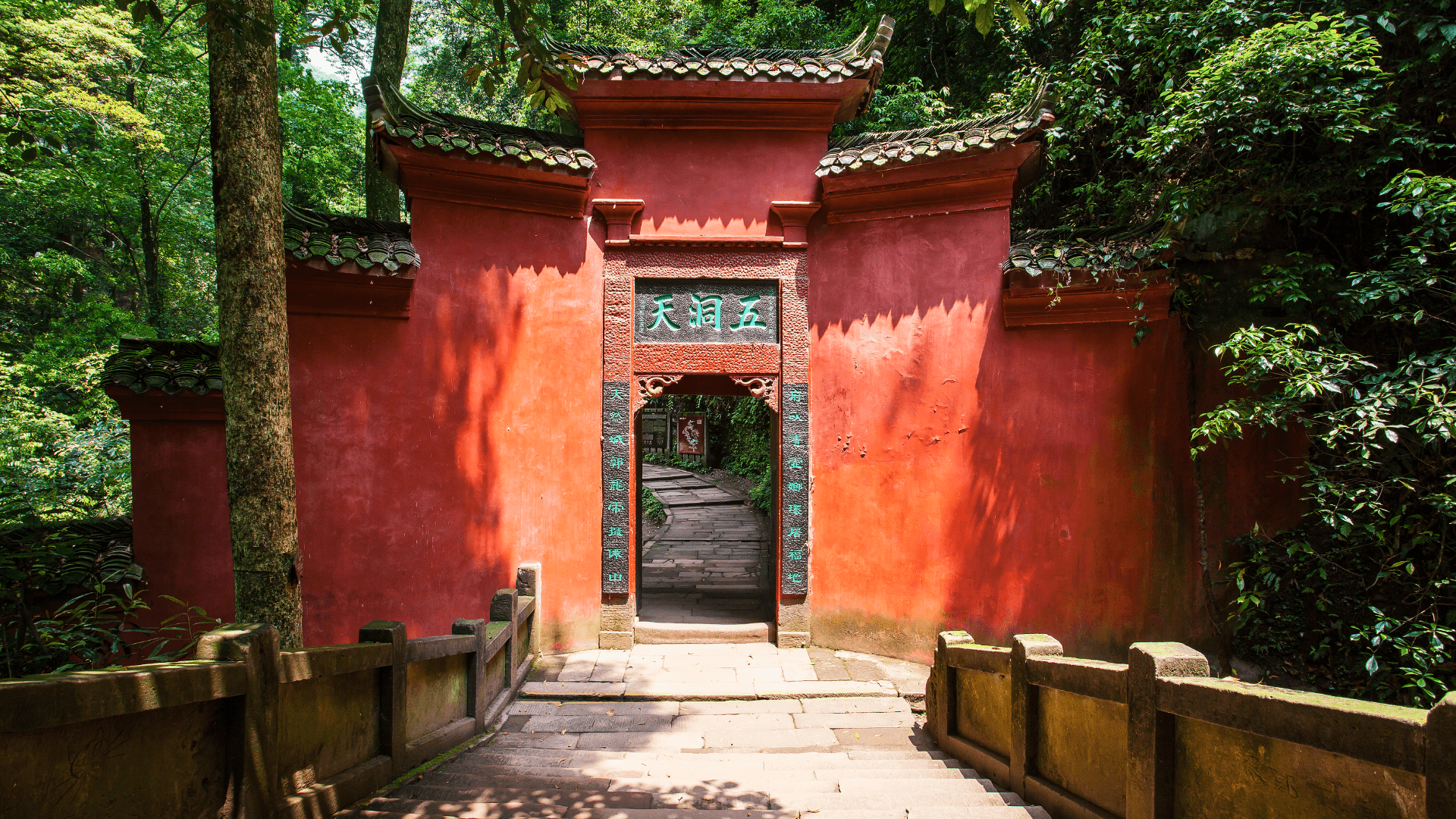
A Symbol of Daoism and Its Harmonious Principles
Mount Qingcheng, revered as one of the birthplaces of Daoism, is no ordinary mountain.
It's a sacred haven, embodying the very essence of Daoist principles – a harmonious union with the natural way of the universe.
Marvel at the majestic landscape, where the famous Dujiangyan Irrigation System gracefully blends with the mountain.
A testament to the Daoist philosophy of harmonizing with nature.
This ingenious ancient system, still operational today, effortlessly irrigates the Chengdu plains.
Without the need for imposing dams.
It perfectly exemplifies the Daoist principle of Wu Wei – the art of effortless action.
But Mount Qingcheng's significance goes beyond its natural splendor.
It stands as a testament to the lasting impact of Daoism on Chinese culture, history, and spiritual life.
It's a spiritual sanctuary that has nurtured the essence of Daoism, leaving an indelible mark on the fabric of Chinese heritage.
There, nature's embrace and ancient wisdom converge in perfect harmony.

3 Ways to Experience Daoism on Mount Qingcheng
You can explore the spiritual and cultural legacy of Daoism on Mount Qingcheng in various ways. Here are some of them:
Attend a Daoist Ritual
You can embark on a transformative journey to Mount Qingcheng.
Where the essence of Daoism comes alive through enchanting rituals and ceremonies.
Step foot into ancient temples like Shangqing Palace and Tianshi Cave, where the whispers of history echo through the hallowed halls.
Delve into the spiritual practices and timeless philosophies that Daoism offers.
And unlock a world of wonder and enlightenment.
Participate in a Tai Chi or Meditation Session
Immerse yourself in this serene environment and tranquil landscapes, where meditation and Tai Chi become a harmonious dance with nature.
Visitors often experience a deep spiritual connection.
Embracing the principles of Daoism on a profoundly personal level.
Discover inner peace and balance as you explore the serene spaces of the temples, fostering a deep bond with Daoist teachings.
And for a truly transformative experience, consider joining Daoist retreats.
Where meditation, Tai Chi, and Qigong sessions await to rejuvenate your mind, body, and soul.
Explore the Carvings and Artwork
The temples on Mount Qingcheng are adorned with exquisite carvings and mesmerizing artwork, beautifully depicting the essence of Daoism.
Step inside and be transported through time as you explore the intricate carvings, which narrate the remarkable history and accomplishments of water control.
Indulge in these mesmerizing works of art.
And unlock the hidden wisdom and teachings that lie within.
Mount Wudang: The Martial Mountain
Mount Wudang (武当山) in Hubei Province is known as the martial mountain.
Why?
Because "Wudang" derives its meaning from the combination of two Chinese characters:
- "Wu" (武), meaning "martial," signifying the essence of martial art
- And "Dang" (当), which means "to regard" or "to treat as"
That means one interpretation of the name could be "regarded as martial," reflecting the mountain's association with martial arts.
Such a captivating association mirrors the deep-rooted connection between the Wudang mountain and the martial arts world.
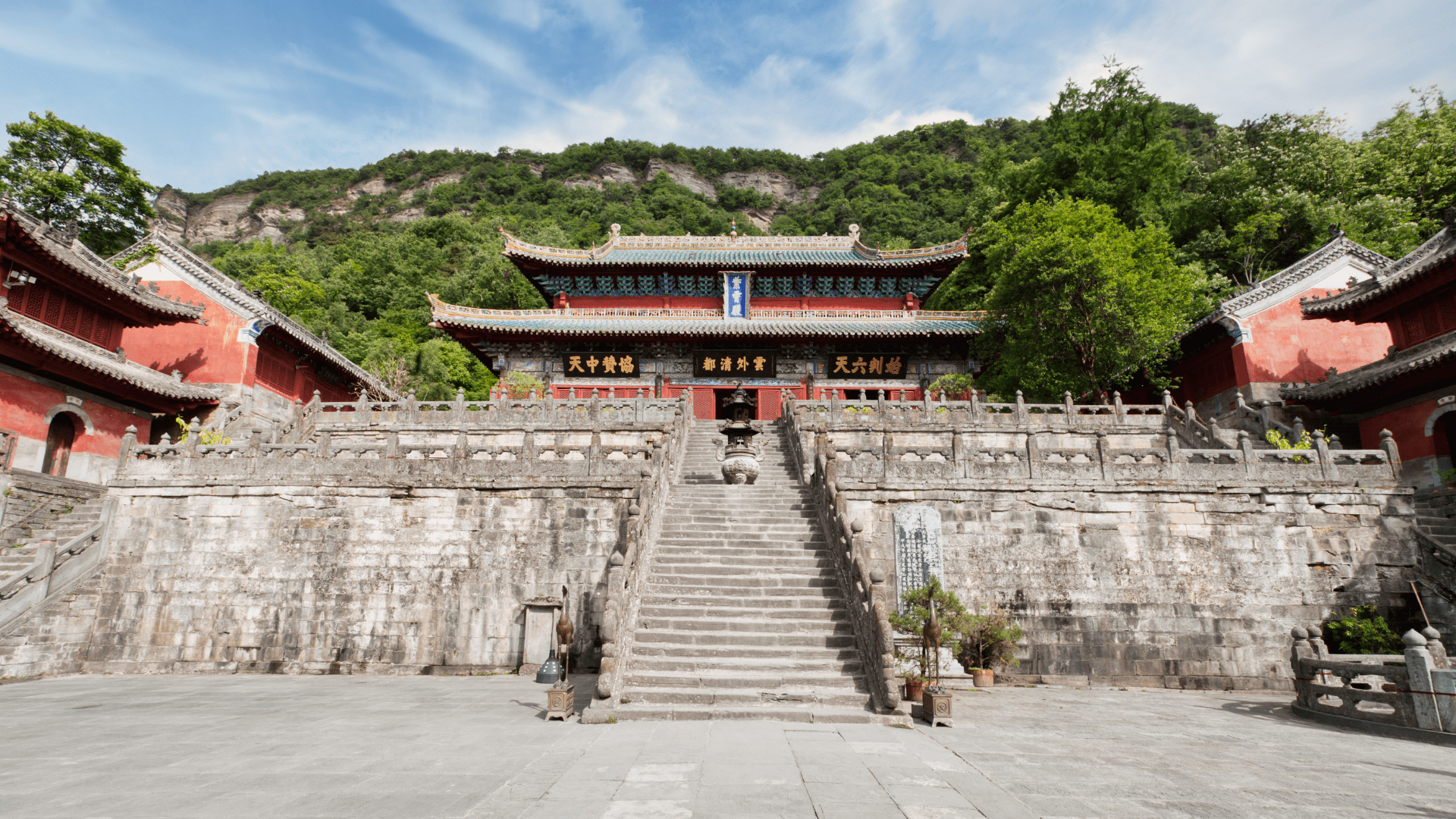
The Birthplace of Wudang Kung Fu
This majestic mountain is the birthplace and the sacred sanctuary of internal martial arts.
Wudang Kung Fu originated from the depths of Daoism.
And was meticulously crafted by devoted monks residing on the breathtaking Mount Wudang.
This extraordinary martial art seamlessly blends the grace of physical movements with the wisdom of spiritual and philosophical practices.
Its transcendental essence even grants it the status of a form of Daoist meditation.
The Abode of the Immortals
Mount Wudang, a haven for Daoist practitioners, holds deep spiritual significance.
Its association with gods and immortals dates back to ancient times, lending an air of mystique.
Within its temples resides a pantheon of deities. Including Zhenwu, the Perfected Warrior, revered in Wudang Kung Fu.
This majestic mountain has been a sacred worship site for centuries, embodying the timeless principles of Daoism.
Its ancient temples stand as testaments to spiritual devotion, adorned with captivating architecture, exquisite artwork, and enchanting decorations.
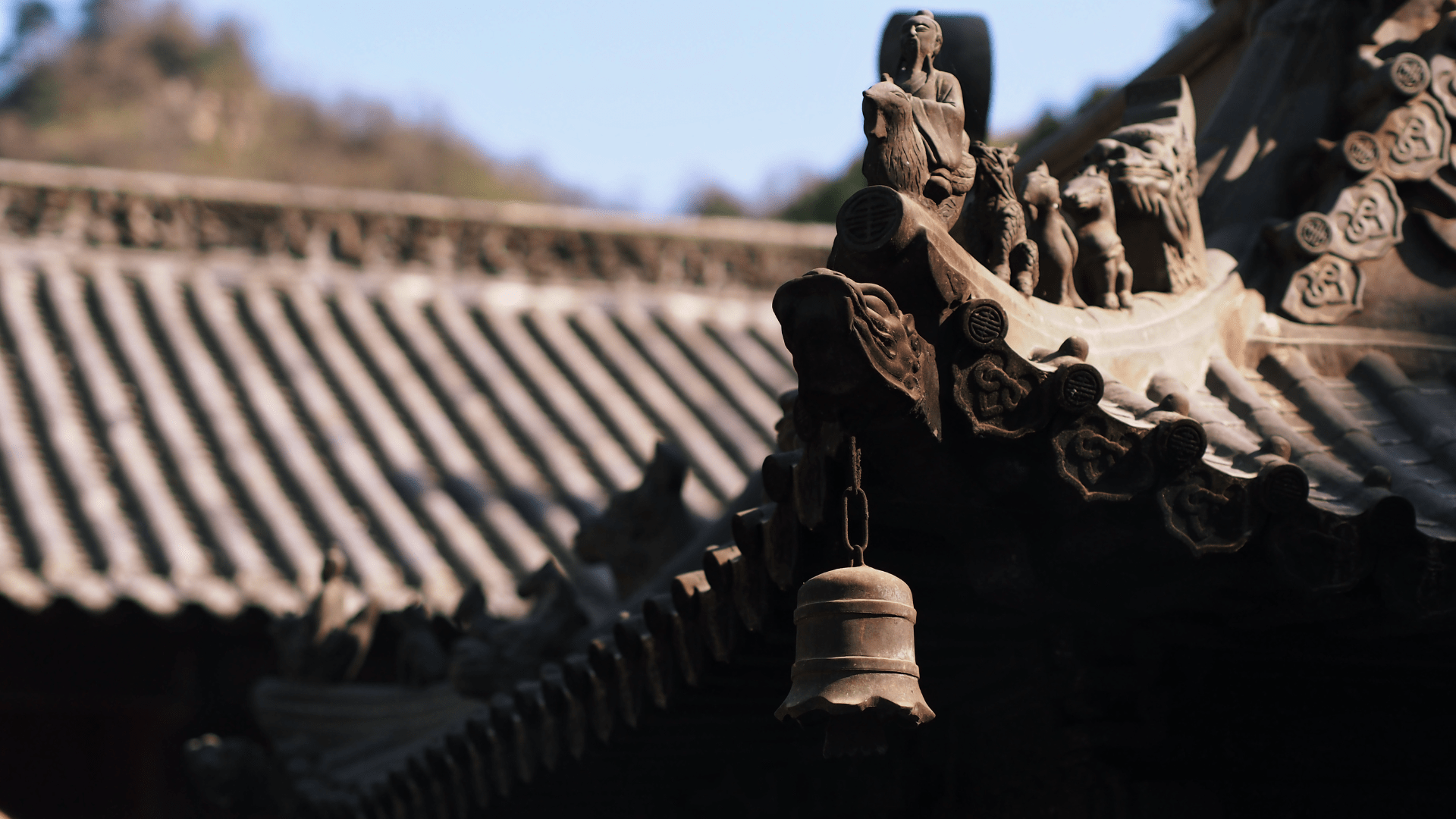
3 Ways to Experience Daoism on Mount Wudang
Mount Wudang offers diverse opportunities to explore Daoism's spiritual and cultural heritage. Here are some of them:
Attend a Ceremony or Martial Arts Performance
You can experience the enchantment of Mount Wudang by immersing yourself in authentic Daoist ceremonies and marveling at breathtaking martial arts performances.
Step into ancient temples like the Golden Hall and Purple Heaven Palace.
And be transported to a world that unveils Daoism's profound spiritual practices and timeless philosophies.
Study Daoism and Tai Chi
You can also engage yourself in the captivating world of Daoism and Tai Chi (taiji quan 太极拳) by studying on the mystical Mount Wudang.
Discover the essence of Daoist thought and practice as you delve into its teachings amidst the serene beauty of this sacred place.
And uncover the secrets of spiritual disciplines through courses offered by experienced masters at the various mountain temples and institutes.
Join a Daoism Cultural Tour
Or undertake a stunning cultural tour that absorbs you in the fascinating world of Daoism.
Delve into Kung Fu mastery, ancient medicinal practices, enchanting music and art, awe-inspiring architecture, and delectable cuisine.
And these extraordinary journeys not only offer a holistic experience.
But also unveil the secrets to living a harmonious life and discovering inner tranquility through the timeless wisdom of Daoist principles.
Mount Longhu: The Dragon and Tiger Mountain
Mount Longhu (龙虎山) in Jiangxi Province is also known as the Dragon and Tiger Mountain.
The name Longhu comes from two Chinese words:
- "Long," which translates to Dragon
- And "Hu," which means Tiger
The name of Mount Longhu is said to derive from the peaks that resemble a dragon and a tiger, evoking a sense of mythical wonder.
These peaks represent balance and the interplay of yin and yang in Daoism.
Renowned for its enchanting landscape, characterized by towering peaks and rugged terrain, this majestic mountain holds deep spiritual significance.
Tracing back through the ages, it adds an air of mystery to this captivating wonderland.
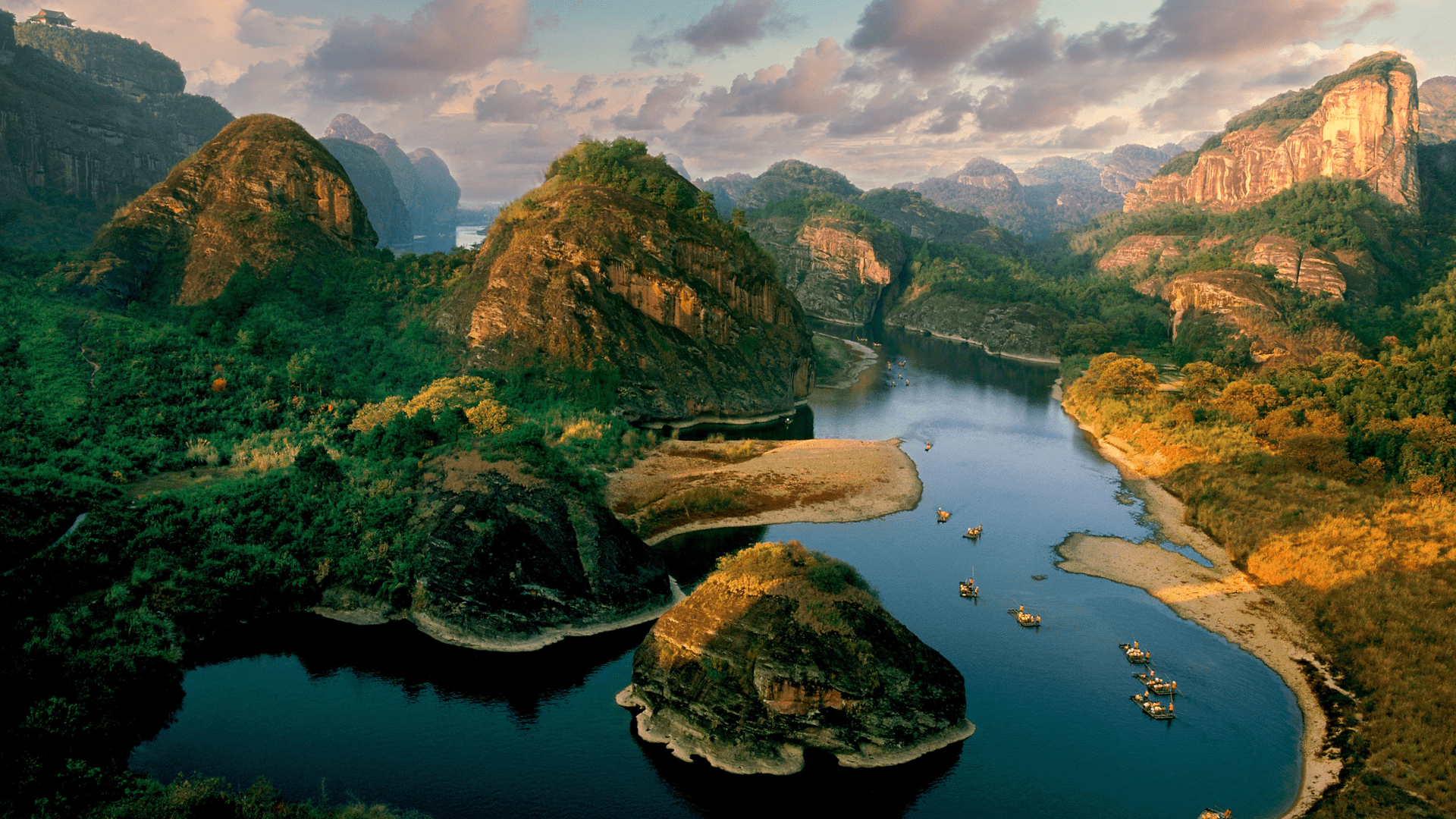
Daoism's Mystical Influence
The Dragon and Tiger Mountain is an essential Daoist pilgrimage site.
And it's one of the few remaining strongholds for traditional Chinese religion and culture.
This sacred mountain has been home to various Daoist temples, notably The Great Temple of Longhu, where many Daoists have sought spiritual enlightenment.
The Dragon and Tiger Mountain has also been revered for its ability to confer longevity.
It's believed that climbing the mountain ascends you to a higher state of consciousness.
And provides a route to ultimate liberation from suffering and the cycle of rebirths.
Inspiration for Literature, Art, and Philosophy
The practices and traditions associated with Mount Longhu have significantly influenced Daoist culture.
The mountain has inspired numerous works of literature, art, and philosophy, reflecting its central role in Daoist thought.
The mountain is also the site of crucial Daoist rituals.
Such as the Celestial Master's Offering of the Peach, a ceremony performed to ensure peace and prosperity.
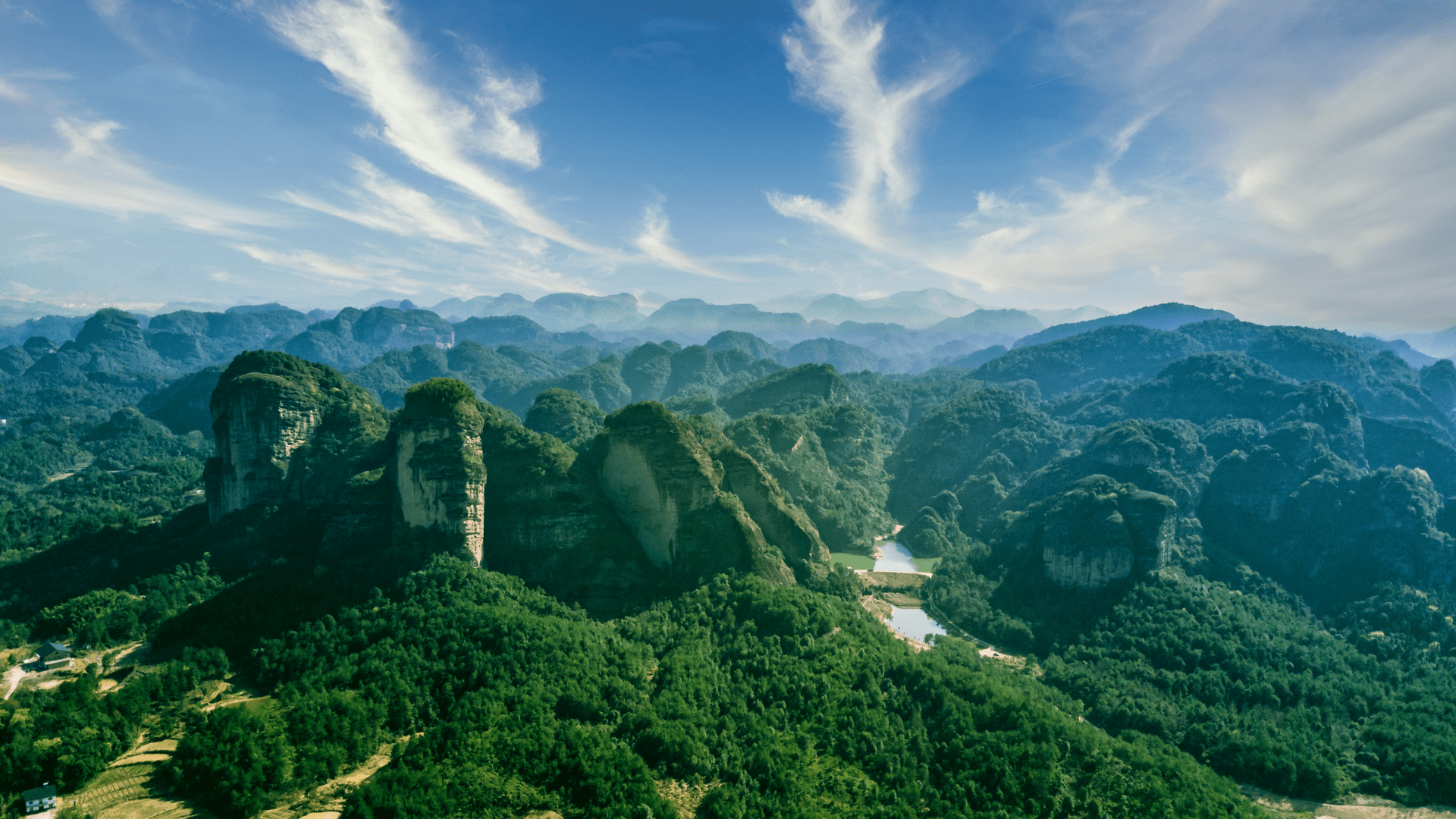
3 Ways to Experience Daoism on Mount Longhu
You can explore Daoism on Mount Longhu in many ways. Here are some of them:
Visit the Daoist Art Performance
The majestic mountain of Longhu is the site of a unique art performance called "Gong An" (功安).
This intriguing ritual involves a passionate exchange between audience members and performers.
Both parties engage in a deep conversation about the nature of life and death.
The performance is held annually in honor of the gods.
And it showcases traditional music and martial arts alongside captivating stories about ancient Daoist culture.
Drift Along the Lu Xi River
Another unique way to experience Daoism on Mount Longhu is drifting along the Lu Xi River.
The river winds through the mountain, passing by numerous ancient Daoist sites.
This tranquil journey mirrors the Daoist concept of "going with the flow."
And can offer a unique perspective on Daoist philosophy.
Meditate in this Sacred Landscape
Daoists visualize the body as a mountainous landscape reflecting the forces of Heaven.
By meditating in the serene environment of Mount Longhu, you can connect with this Daoist practice on a deeper level.
Experiencing the mountain as a reflection of your inner self.
Mount Qiyun: The Golden Summit
Mount Qiyun (齐云山) in China's Anhui province is the final of the Four Sacred Mountains of Daoism.
"Qiyun" translates to "as high as the clouds" or "cloud ladder."
The name reflects the mountain's lofty peaks and the often cloud-shrouded scenery.
Creating an image of a ladder reaching up to the skies.
This aligns with Daoist symbolism, where mountains are sacred places that connect the earthly realm with the celestial one.
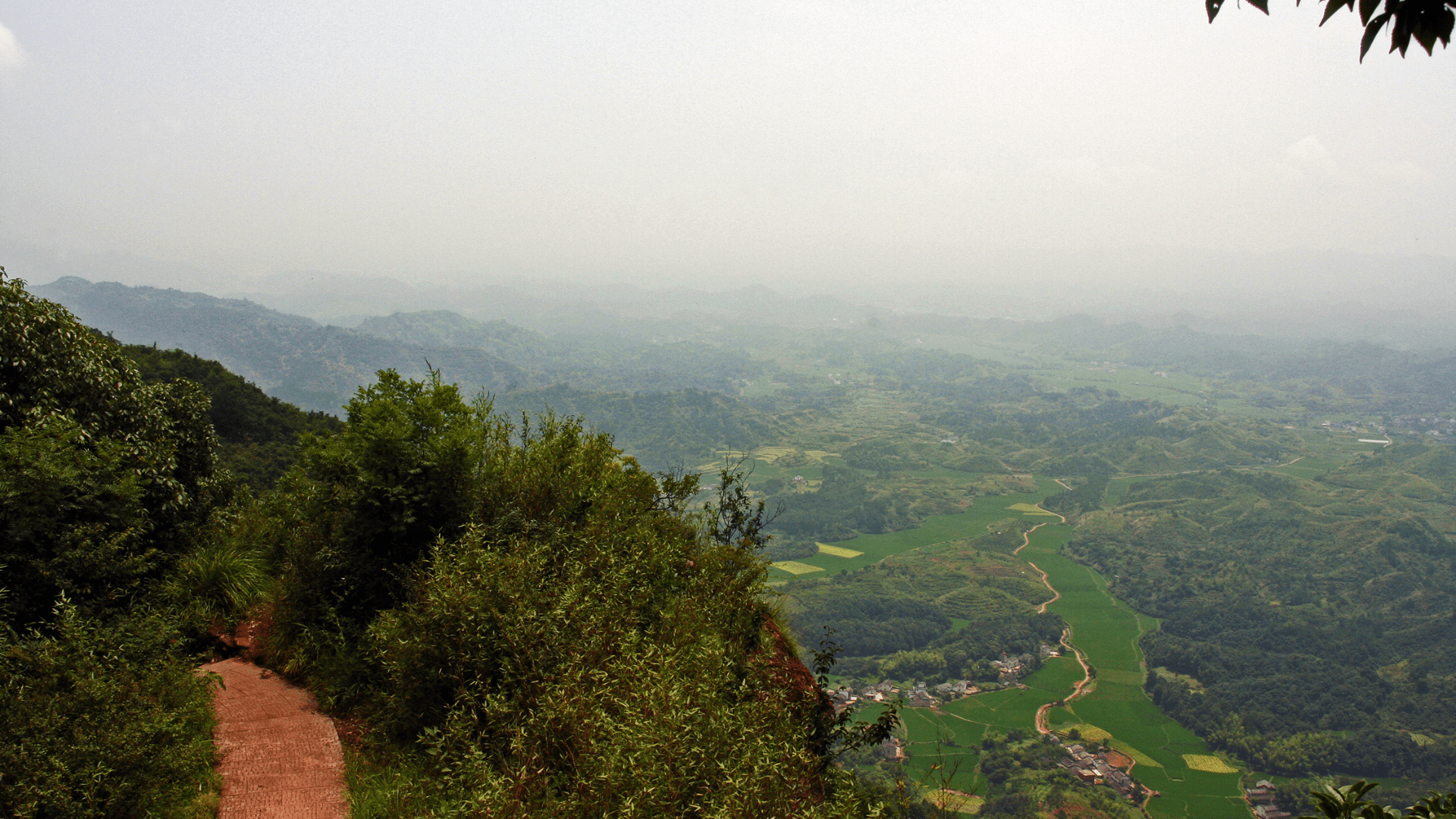
Focal Point for Spreading Daoist Teachings
Mount Qiyun holds historical significance in Daoism.
The mountain is associated with Chen Tuan (陳摶), a well-known Daoist sage.
He supposedly practiced self-cultivation there in the 10th century.
This connection to a significant figure in Daoism has cemented Mount Qiyun's place in the annals of religious history.
Spiritual Center for Meditation
Mount Qiyun's serene ambiance and breathtaking landscapes provide an ideal backdrop for meditation and self-reflection, integral to Daoist philosophy.
The mountain's majestic cliffs, peaceful caves, and enchanting sea of clouds create a natural sanctuary. Suspended between heaven and earth.
This environment fosters a deep sense of spiritual connection and facilitates introspection.
Aligning perfectly with Daoist principles that encourage inner peace and mindfulness.
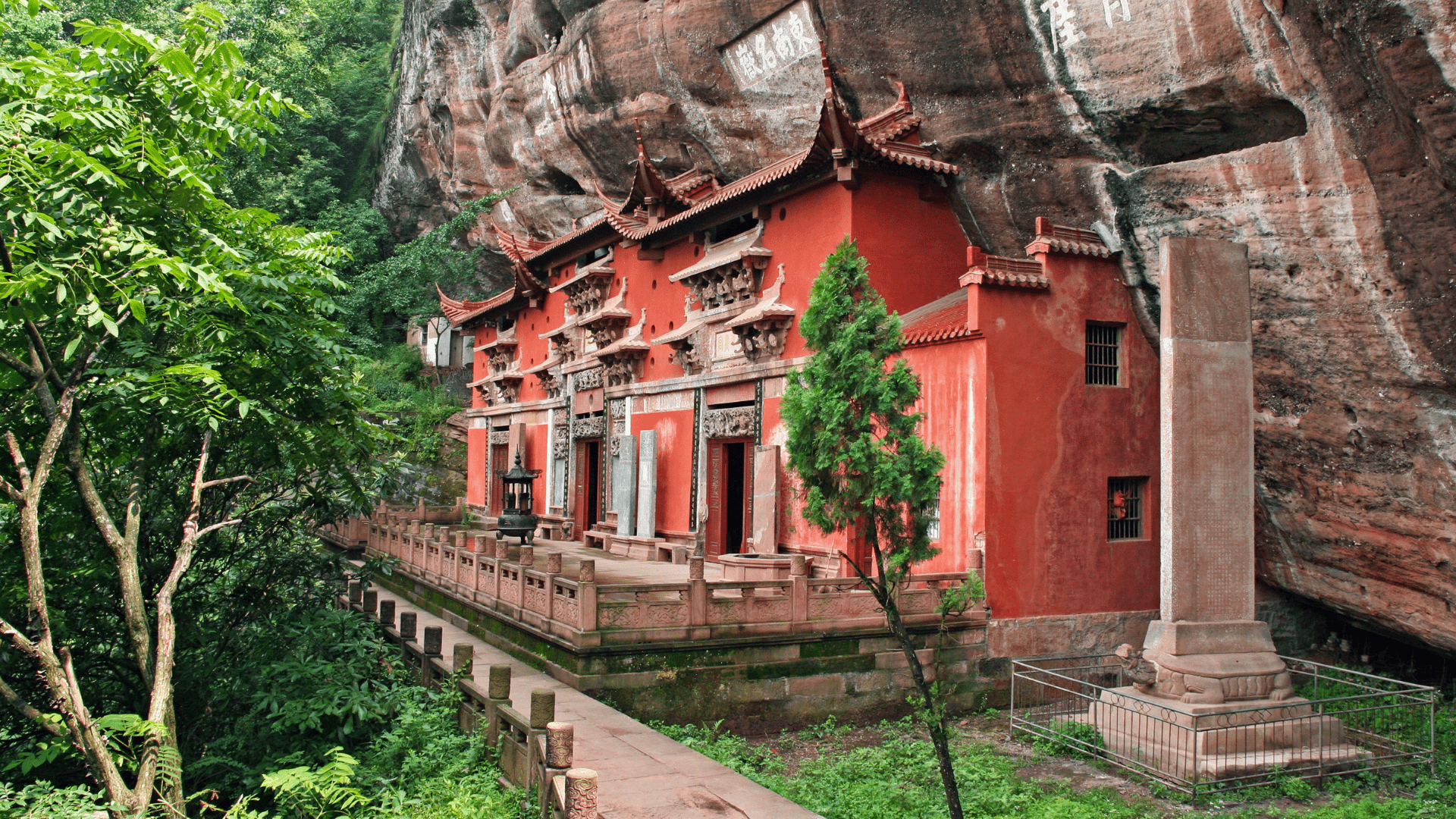
3 Ways to Experience Daoism on Mount Qiyun
You can experience Daoism on this beautiful mountain in various ways. Here are some of them:
Stay at a Local Guesthouse
For an immersive cultural experience, consider staying overnight at a local guesthouse.
Many guesthouses offer activities such as Daoist tea ceremonies and calligraphy lessons.
Participating in a tea ceremony lets you experience Daoist mindfulness and presence in daily activities.
Meanwhile, learning calligraphy, particularly of Daoist scriptures and aphorisms, offers insights into Daoism's aesthetic and philosophical dimensions.
Explore the Daoist Rock Carvings
Mount Qiyun is famous for its ancient Daoist rock carvings.
These carvings are not just artistic expressions.
But they also contain deep philosophical teachings.
Guided tours of these sites are available, where experts explain the stories and meanings behind these carvings.
This is a unique way to learn about Daoism and its influence on Chinese culture and art.
Stay at a Daoist Temple
The Qiyunshan Daoist Temple is a must-visit for anyone interested in experiencing Daoism.
Here, you can opt for a few days' stay and live the life of a Daoist monk.
This involves waking up early, participating in morning rituals, meditating, and eating vegetarian meals.
You can engage with the monks and learn about their philosophy and way of life.
It's a rare opportunity to immerse yourself in the tranquility of the mountains and gain a deeper understanding of Daoism.
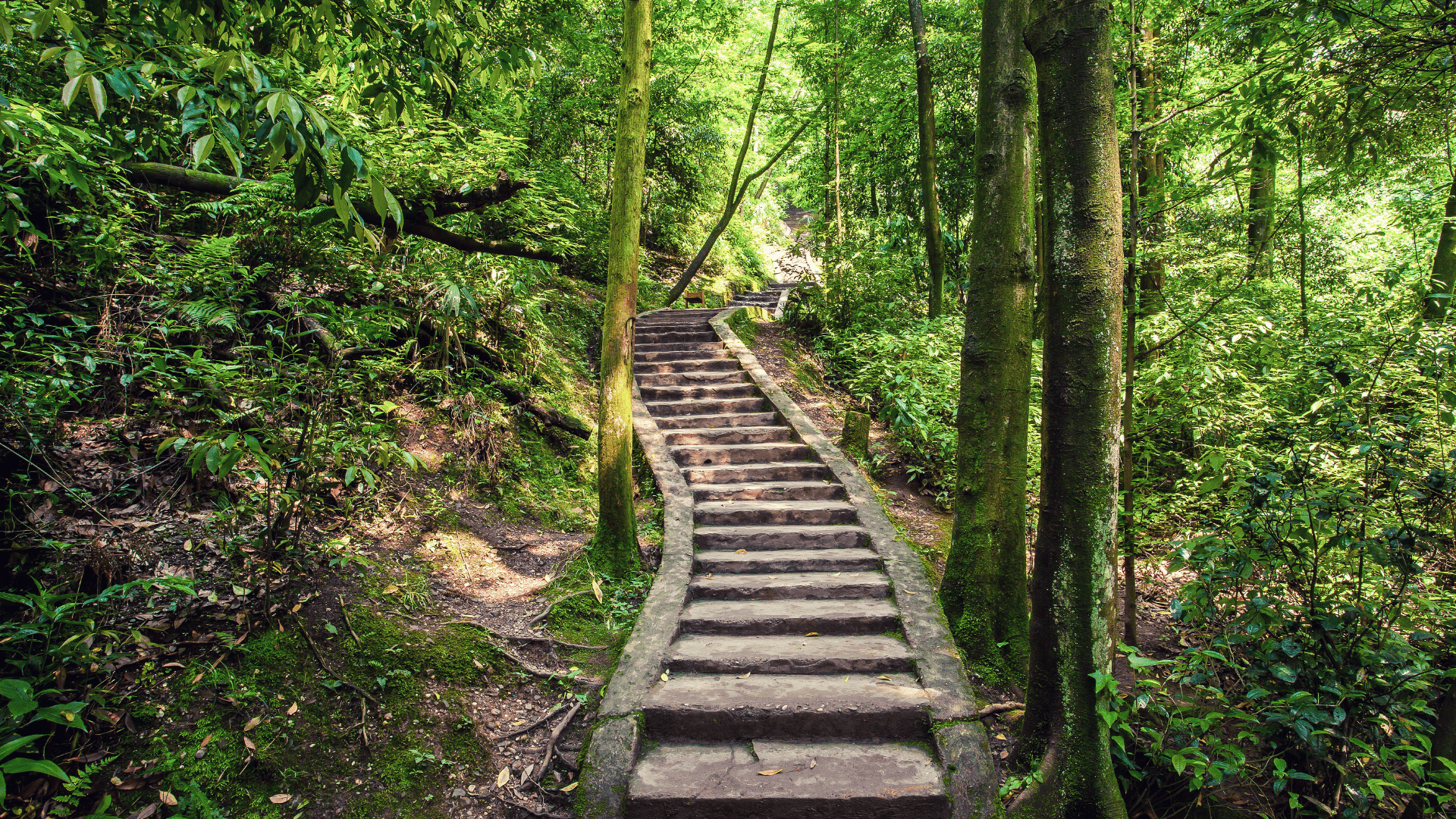
Each Mountain Offers an Enlightening Journey
The Four Sacred Mountains of Daoism are not just sites of immense natural beauty but also spiritual significance.
Each mountain embodies Daoism's profound wisdom and mystique, offering an enlightening journey into Chinese spirituality and culture.
Visiting these mountains is more than just a travel adventure.
It's an unforgettable spiritual journey that leaves a lasting impact on your mind and soul.
By exploring these mountains, you don't just witness the grandeur of nature.
But also experience the timeless wisdom of Daoism, providing insights that resonate long after the trip ends.
So, pack your bags, book your stay, and embark on a journey to these sacred mountains.
A voyage of discovery, enlightenment, and transformation awaits you.


Comments ()